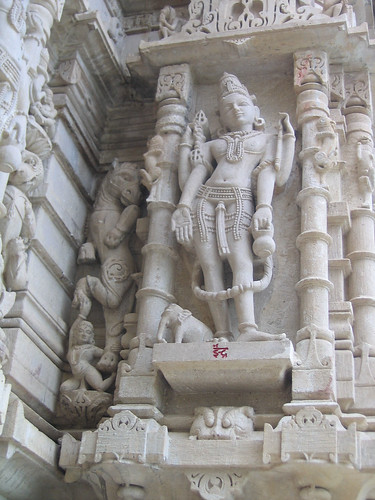Indra (Sanskrit: इन्द्र or इंद्र, Indra) is the god of War and Weather, also the King of the gods or Devas and Lord of Heaven or Svargaloka in Hinduism. Mentioned first as the chief deity in the sacred Hindu text of Rig Veda, Indra is bestowed with a heroic and almost brash and amorous character. He has always remained significant in Indian mythology, from Vedic to Puranic times, as the primary ruler of all devas, even as his reputation and role diminished in later Hinduism with the rise of the Trimurti.
In Buddhist and Jain texts, Indra is commonly called by his other name Śakra, ruler of the Trāyastriṃśa heaven. Śakra is, however, sometimes given the title Indra, or, more commonly, Devānām Indra, "Lord of the Devas". In East Asian Buddhist countries such as China, Korea and Japan, he is known as 帝釈天 (Jp: Taishakuten). Some Buddhists have also even interpreted that the Jade Emperor is another interpretation of Indra.
Some point out that Skanda might also be a manifestation of Vajrapani (Indra), a Vajrayana bodhisattva who bears some relations to Skanda because they both wield vajras as weapons and are portrayed with flaming halos. He may also be connected through Vajrapani through a theory to his connection to Greco-Buddhism, as Wei Tuo's image is reminiscent of the Heracles depiction of Vajrapani.
In Jainism, Indra awards a golden robe to Mahavira, and later welcomes him into heaven.
The ceremonial name of Bangkok claims that the city was "given by Indra and built by Vishnukam." The provincial seal of Surin province in Thailand, is an image of Indra atop Airavata.
http://en.wikipedia.org/wiki/Indra














No hay comentarios:
Publicar un comentario